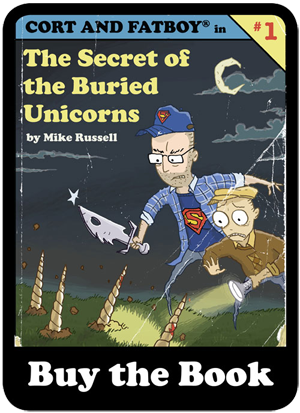Trump Video Games: Satire, Mods, Memes Explained
When you dive into Trump video games, you're stepping into a digital world where satire, memes, and mods blend politics with play. You’ll notice developers and fans twisting familiar Trump traits into exaggerated characters, memes, and interactive commentary. Whether you laugh or wince, these games reflect a mix of public sentiment and pop culture. But how do these digital parodies shape what you think—and why have they become so popular right now?
Understanding Memes: Definitions and Digital Evolution
Meme culture has transitioned from a niche phenomenon to a significant aspect of digital communication. Memes are now prevalent in our daily interactions, manifesting as video clips featuring political figures, widely recognized stock images, and parodic interpretations of public officials. These digital artifacts serve to communicate concise messages that resonate with audiences.
Various companies and media outlets have begun to harness artificial intelligence and advanced technology to create and disseminate memes more effectively, frequently utilizing platforms such as Truth Social for this purpose.
The evolution of memes extends beyond mere humor; they have become instruments that can sway public opinion, influence voter behavior, and shape political narratives. Government officials and agencies have recognized the impact of memes in shaping perceptions and attitudes.
The dissemination of memes can facilitate social connection and commentary, yet the distinction between lighthearted content and deeper ideological implications is increasingly nuanced. This complexity warrants careful analysis, as the role of memes in modern discourse continues to expand.
Gaming Culture Meets Politics: The Rise of Satirical Mods
The intersection of gaming culture and politics has become an increasingly significant area for political satire, as traditional boundaries between these realms continue to diminish. The incorporation of political references, such as those related to the Trump administration, within video game contexts demonstrates a novel method of engagement that resonates across various media platforms, including Truth Social.
Such integrations often serve to stimulate discourse among both gamers and the wider electorate.
The phenomenon surrounding GameStop's stock surge in 2021 underscores the interplay between emerging trends, online communities, and satirical modifications in gaming. These developments highlight the role of digital tools in reshaping content creation, with some instances leveraging AI technology for innovative commentary on current events.
Furthermore, public figures, including politicians like Kamala Harris, are frequently referenced within this digital landscape. This raises questions about the appropriateness of these modern forms of expression, as discussions unfold regarding their influence on public perception and the evolving relationship between politics and gaming.
Overall, the synthesis of these domains invites a deeper examination of how digital culture can impact political engagement and societal discourse.
Meme Strategies in the Trump Administration
The Trump administration adopted meme strategies as a means to engage with younger voters, particularly by integrating elements of gaming culture into its communication. An example of this was a tweet that featured the former president's likeness superimposed onto Halo's Master Chief, illustrating an effort to resonate with the interests of the gaming community.
The administration utilized memes as a strategic asset, capitalizing on social media platforms, including Truth Social, to disseminate content that referenced popular video games and contemporary trends. The accessibility of meme generation tools, including AI-driven applications, facilitated the swift creation and sharing of meme content, allowing for timely engagement with relevant subjects.
Media outlets subsequently examined the implications of this approach, raising questions regarding the government's adoption of advanced technology and strategies for communication.
The phenomenon of meme-based engagement was further exemplified by companies like GameStop, which highlighted the speed at which viral content can proliferate in online communities, reflecting changing dynamics in political and consumer interactions.
In summary, the use of memes in political communication, as evidenced by the strategies employed during the Trump administration, represents an evolving interplay between technology, culture, and voter engagement.
GameStop, Console Wars, and Viral Political Engagement
The intersection of gaming culture and political discourse became notably evident during the Trump administration, influenced by various factors, including the administration's strategic involvement in the "console wars."
A pivotal moment occurred when a tweet depicted Donald Trump as the protagonist Master Chief from the Halo franchise, following Microsoft's announcement of a Halo remake. This incident exemplified how political figures leveraged popular culture to engage with a wider audience.
GameStop also played a role in this dynamic. The company utilized social media to create content that merged political themes with gaming elements.
For example, they produced memes that resembled executive orders, effectively blurring the lines between politics, video games, and media engagement. This approach aimed to capture public attention and provoke discussion.
Using memes and emerging technologies, both the government and companies sought to foster viral engagement, tapping into the growing overlap between these realms.
The resulting interaction has spurred debate among voters, media professionals, and users of platforms such as Truth Social regarding the appropriateness and implications of this method of engagement.
The dialogue highlights the evolving landscape of political communication, shaped significantly by digital culture and its influence on public perception.
Memes as Modern Campaign Messaging Tools
Campaigns are increasingly recognizing the utility of memes as effective tools for political messaging, particularly in engaging younger voters who may be less responsive to traditional campaign strategies. Memes are capable of generating rapid emotional responses and offer voters an accessible means to engage with political issues.
For instance, the Trump administration utilized platforms like Truth Social to disseminate messages through memes, incorporating AI and video content to enhance their reach. However, the phenomenon is not unique to a single political entity; various public figures, including Vice President Kamala Harris, also leverage meme culture to connect with constituents.
The prevalence of stock memes, satire, and media tactics contributes to the rapid production and dissemination of content, thus equipping campaign strategists with new forms of technology to influence public discourse.
This shift reflects a broader trend in political communication, where brevity and relatability are increasingly prioritized to capture the attention of a diverse electorate. The effectiveness of memes as a campaign tool underscores the evolving landscape of political messaging in the digital age.
Deepfakes, Regulation, and Legal Dilemmas in Meme Culture
As digital media evolves, the intersection of deepfakes and meme culture poses significant challenges to existing legal and regulatory frameworks. The use of artificial intelligence to generate videos, often featuring prominent public figures such as Trump and Harris, frequently incorporates stock content and is disseminated through platforms like Truth Social.
While these memes may initially be created with satirical intent, they possess the potential to mislead voters and the general public.
Current legal structures, including Section 230 of the Communications Decency Act, demonstrate shortcomings in adequately regulating the use of memes. Proposed legislative measures aim to address these gaps, yet the complexities inherent in digital communication continue to obstruct effective regulation.
Memes, particularly those incorporating deepfake technology, can distort public discourse and raise critical questions about accountability and responsibility in the digital landscape.
As technology advances, the implications for information dissemination and public understanding warrant careful examination. This ongoing evolution necessitates a reevaluation of regulatory approaches to ensure that both innovation and the integrity of discourse are preserved.
Cryptocurrency, NFTs, and the Commodification of Memes
The digital landscape has long been a medium for the dissemination of jokes and satire, but recent developments have transformed certain facets of this culture into financial instruments, resulting in a complex interplay between cultural expression and commercial interests.
This trend is illustrated by the activities associated with former President Trump's administration, which has engaged with technology and artificial intelligence to create meme-based content that is subsequently treated as tradeable digital assets.
The company behind Truth Social, through its initiative Truth.Fi, has positioned itself within this evolving market by encouraging participants to invest in cryptocurrencies and non-fungible tokens (NFTs).
For instance, the concept of "Melania Memes" presents a case where meme culture intersects with financial speculation. Media analysis has highlighted the significant price volatility often associated with these digital assets, reflecting characteristics similar to those observed in traditional stock markets.
These developments raise important questions about the intention behind meme creation and utilization, particularly within the context of government discourse.
While some memes may initially serve as humorous or satirical commentary, their commodification as investments can obscure their cultural significance and complicate the public's understanding of their role in societal narratives.
This intersection of culture and commerce warrants careful examination as it continues to shape the landscape of both online expression and economic engagement.
Intellectual Property Battles: The Dallas Logo Dispute
A recent lawsuit initiated by the City of Dallas against the Triple D Gear clothing line highlights important issues surrounding intellectual property rights. The city is taking legal action to safeguard its branding, claiming that the clothing line’s logo could lead to confusion among the public.
This situation reflects broader trends in urban branding, where municipalities apply strategies similar to those used in digital media, including monitoring tools powered by technology and artificial intelligence to track potential misuse of their intellectual property.
The legal proceedings emphasize the importance of ownership and the protection of distinctive symbols in a competitive marketplace. In a parallel context, similar disputes have emerged on social media platforms, where the use of stock images, memes, and trademarks raises questions about copyright and the appropriate use of branding.
Such cases illustrate the ongoing challenges of defining and enforcing intellectual property rights in a rapidly evolving digital landscape.
Conclusion
As you navigate the intersection of gaming and politics, you’ll see how Trump video games use satire, mods, and memes to reflect and shape public opinion. These games don’t just entertain—they provoke discussions about leadership, policy, and culture. Whether you engage with mods, debate their impact, or analyze the economics, you’re witnessing the evolution of political commentary in interactive media. In the end, these games challenge you to think critically about the narratives they present.


